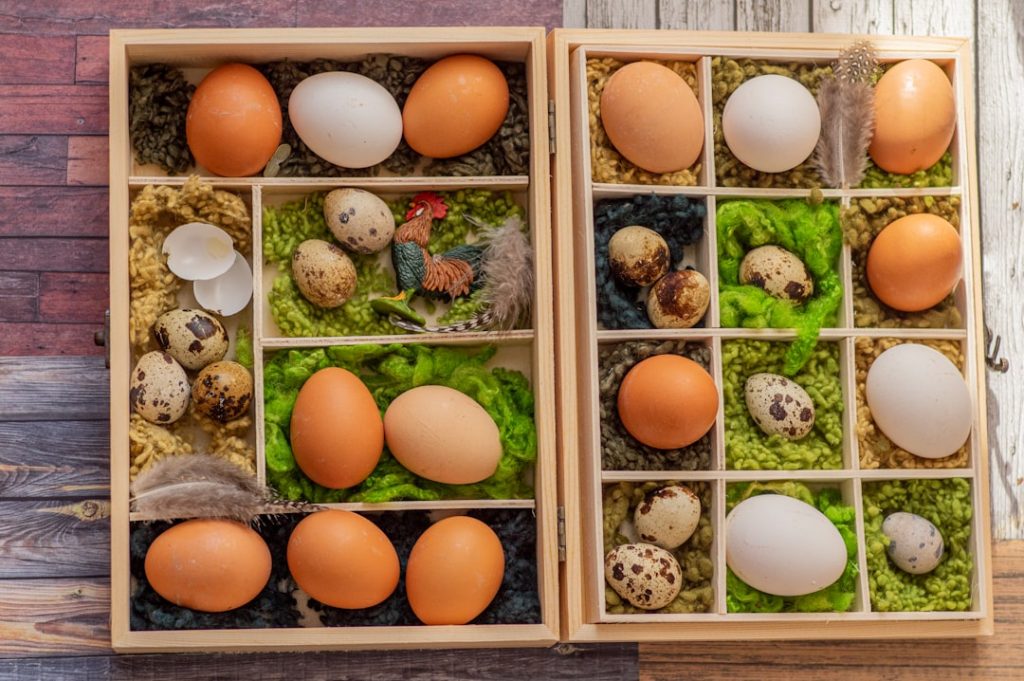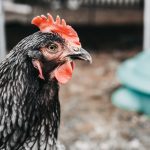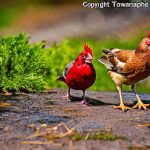Keeping chickens can be a rewarding and fulfilling experience, but it also comes with a set of responsibilities and regulations that must be adhered to. The Department for Environment, Food & Rural Affairs (DEFRA) in the United Kingdom has established regulations to ensure the welfare of chickens and to prevent the spread of diseases. These regulations cover various aspects of chicken keeping, including housing, biosecurity, feeding, disease prevention, and registration.
It is important for chicken keepers to familiarize themselves with these regulations in order to provide the best care for their birds and to comply with the law. DEFRA’s regulations on keeping chickens are designed to promote good animal welfare and to protect the health of both the chickens and the wider poultry population. By following these regulations, chicken keepers can contribute to the overall health and well-being of their birds and help prevent the spread of diseases that can have devastating effects on poultry populations.
In the following sections, we will explore the specific requirements and guidelines set out by DEFRA for keeping chickens, as well as the support and resources available to chicken keepers to help them comply with these regulations.
Table of Contents
- 1 Requirements for keeping chickens in terms of housing and biosecurity
- 2 Guidelines for feeding and caring for chickens to ensure their welfare
- 3 Importance of registering your chickens with DEFRA and complying with regulations
- 4 Measures for preventing and controlling diseases in chickens
- 5 How DEFRA supports chicken keepers in promoting good animal welfare
- 6 Resources and support available for chicken keepers from DEFRA
- 7 FAQs
Key Takeaways
- DEFRA has regulations in place for keeping chickens to ensure their welfare and prevent disease spread
- Chickens must have suitable housing and biosecurity measures to prevent disease transmission
- Guidelines for feeding and caring for chickens are important for their welfare and health
- Registering chickens with DEFRA and complying with regulations is crucial for disease control and traceability
- Preventing and controlling diseases in chickens is essential for their welfare and public health
- DEFRA supports chicken keepers in promoting good animal welfare through guidelines and resources
- DEFRA provides resources and support for chicken keepers to help them comply with regulations and ensure the welfare of their chickens
Requirements for keeping chickens in terms of housing and biosecurity
Providing a Suitable Living Environment
Chickens require a suitable and secure living environment that protects them from predators, adverse weather conditions, and disease. This includes providing adequate space for the number of chickens being kept, as well as shelter, perches, nesting boxes, and access to clean water and food.
Implementing Biosecurity Measures
In addition to providing a safe and secure living environment, biosecurity measures are essential for preventing the spread of diseases. This includes controlling access to the chicken coop, regularly cleaning and disinfecting the premises, and preventing contact with wild birds or other poultry.
Preventing the Spread of Diseases
By implementing these biosecurity measures, chicken keepers can reduce the risk of diseases such as avian influenza and Newcastle disease, which can have devastating effects on poultry populations. It is important for chicken keepers to regularly review and update their biosecurity measures in line with DEFRA’s guidelines to ensure the ongoing health and welfare of their birds.
Guidelines for feeding and caring for chickens to ensure their welfare
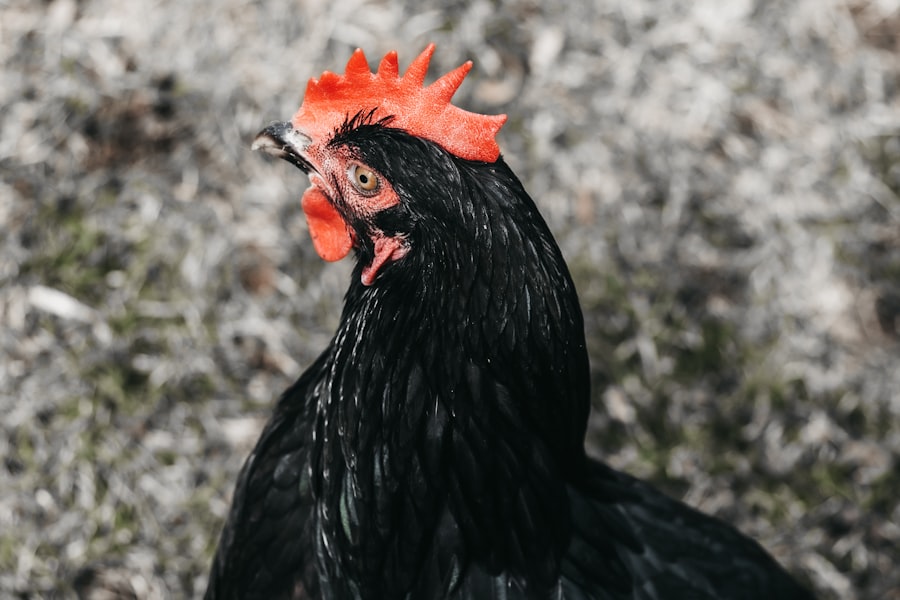
In addition to providing appropriate housing and implementing biosecurity measures, DEFRA’s regulations also include guidelines for feeding and caring for chickens to ensure their welfare. Chickens should be provided with a balanced diet that meets their nutritional needs, including access to fresh water at all times. Additionally, chickens should be regularly monitored for signs of illness or injury, and appropriate veterinary care should be sought if necessary.
It is also important to provide enrichment activities for chickens to prevent boredom and promote natural behaviors, such as dust bathing and foraging. Furthermore, DEFRA’s regulations emphasize the importance of providing appropriate care for chickens to ensure their welfare. This includes monitoring their health and behavior, providing access to veterinary care when needed, and implementing enrichment activities to promote natural behaviors.
By following these guidelines, chicken keepers can ensure that their birds are healthy, happy, and able to exhibit their natural behaviors. It is important for chicken keepers to stay informed about best practices for feeding and caring for chickens in order to provide the best possible care for their birds.
Importance of registering your chickens with DEFRA and complying with regulations
Registering your chickens with DEFRA is an important step in complying with regulations and ensuring the health and welfare of your birds. By registering your chickens, you are helping to create a comprehensive database of poultry holdings in the UK, which is essential for disease control and surveillance. In the event of a disease outbreak, registered chicken keepers can be quickly contacted by DEFRA with important information and guidance on how to protect their birds.
Additionally, registering your chickens demonstrates your commitment to responsible chicken keeping and compliance with DEFRA’s regulations. Complying with DEFRA’s regulations is essential for promoting good animal welfare and preventing the spread of diseases in poultry populations. By registering your chickens with DEFRA and adhering to their regulations, you are contributing to the overall health and well-being of your birds and helping to protect the wider poultry population from disease outbreaks.
It is important for chicken keepers to take their responsibilities seriously and to comply with DEFRA’s regulations in order to ensure the best possible care for their birds.
Measures for preventing and controlling diseases in chickens
Preventing and controlling diseases in chickens is a key aspect of DEFRA’s regulations on keeping poultry. This includes implementing biosecurity measures to prevent the introduction and spread of diseases, as well as monitoring the health of chickens and seeking veterinary care when necessary. Additionally, chicken keepers should be vigilant for signs of notifiable diseases such as avian influenza or Newcastle disease, which must be reported to DEFRA immediately.
By following these measures, chicken keepers can help prevent disease outbreaks and protect the health of their birds. In addition to implementing biosecurity measures, DEFRA also provides guidance on vaccination programs for certain diseases that pose a risk to poultry populations. Vaccination can be an effective tool for preventing disease outbreaks and protecting the health of chickens.
By following DEFRA’s guidelines on vaccination programs, chicken keepers can help ensure that their birds are protected from common poultry diseases. It is important for chicken keepers to stay informed about disease prevention measures and to work closely with their veterinarian to develop a comprehensive disease control plan for their flock.
How DEFRA supports chicken keepers in promoting good animal welfare
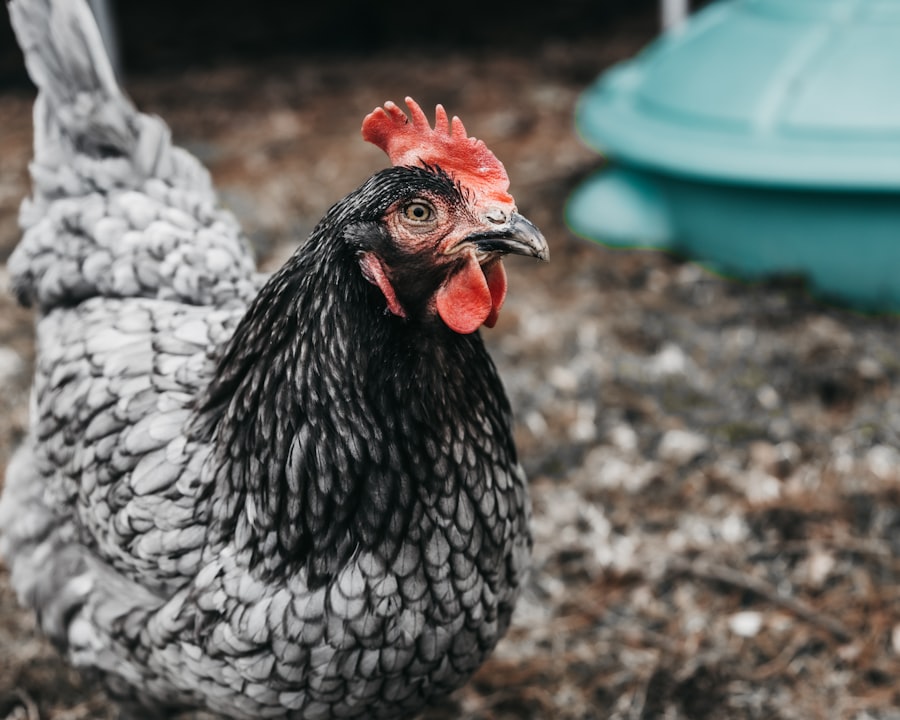
Empowering Chicken Keepers
By providing this support, DEFRA aims to empower chicken keepers to provide the best possible care for their birds and to comply with regulations. DEFRA’s resources and training programs enable chicken keepers to stay informed about current regulations and best practices, ensuring they can provide optimal care for their chickens.
Collaboration with Stakeholders
DEFRA works closely with industry stakeholders, veterinary professionals, and other organizations to develop comprehensive guidance on best practices for chicken keeping. This collaboration includes research projects, developing educational materials, and providing access to expert advice on animal welfare and disease control.
Taking Advantage of Support
By working together with these stakeholders, DEFRA is able to provide valuable support to chicken keepers in promoting good animal welfare and ensuring the health of their birds. It is essential for chicken keepers to take advantage of the support and resources available from DEFRA to provide the best possible care for their birds.
Resources and support available for chicken keepers from DEFRA
DEFRA offers a range of resources and support for chicken keepers to help them comply with regulations and promote good animal welfare. This includes access to guidance documents on best practices for housing, feeding, disease prevention, and biosecurity measures. Additionally, DEFRA provides access to training programs, workshops, and online resources that can help chicken keepers stay informed about current regulations and best practices.
By taking advantage of these resources, chicken keepers can ensure that they are providing the best possible care for their birds. In addition to providing guidance documents and training programs, DEFRA also offers support in the form of expert advice from veterinary professionals and industry stakeholders. This includes access to information on disease prevention and control, as well as guidance on vaccination programs and biosecurity measures.
By working closely with these experts, chicken keepers can access valuable support in promoting good animal welfare and ensuring the health of their birds. It is important for chicken keepers to take advantage of the resources and support available from DEFRA in order to comply with regulations and provide the best possible care for their birds. In conclusion, DEFRA’s regulations on keeping chickens are designed to promote good animal welfare and prevent the spread of diseases in poultry populations.
By following these regulations and taking advantage of the support and resources available from DEFRA, chicken keepers can ensure that they are providing the best possible care for their birds while complying with the law. It is important for chicken keepers to familiarize themselves with these regulations and stay informed about best practices for housing, feeding, disease prevention, and biosecurity measures in order to promote the health and welfare of their birds.
If you’re interested in learning more about keeping ducks, Poultry Wizard has a great article on what you should feed ducks. It’s a helpful resource for anyone looking to start their own backyard poultry flock.
FAQs
What is DEFRA?
DEFRA stands for the Department for Environment, Food and Rural Affairs. It is a government department in the United Kingdom responsible for safeguarding the natural environment, supporting the food and farming industry, and promoting animal welfare.
What are the regulations for keeping chickens according to DEFRA?
DEFRA has regulations in place to ensure the welfare of chickens and to prevent the spread of diseases. These regulations cover areas such as housing, biosecurity, and disease control. It is important for chicken keepers to be aware of and comply with these regulations.
Do I need to register my chickens with DEFRA?
If you have 50 or more chickens, you are required to register your flock with DEFRA. This is to help with disease control and to enable the government to contact you in the event of a disease outbreak.
What should I do if I suspect my chickens are sick?
If you suspect that your chickens are sick, it is important to contact DEFRA or a veterinarian as soon as possible. They can provide guidance on how to handle the situation and may need to investigate further to prevent the spread of disease.
What biosecurity measures should I take when keeping chickens?
Biosecurity measures are important for preventing the spread of diseases among chickens. This includes measures such as keeping the coop clean, limiting visitors to the flock, and preventing contact with wild birds. DEFRA provides guidance on biosecurity measures for chicken keepers to follow.
Meet Walter, the feathered-friend fanatic of Florida! Nestled in the sunshine state, Walter struts through life with his feathered companions, clucking his way to happiness. With a coop that’s fancier than a five-star hotel, he’s the Don Juan of the chicken world. When he’s not teaching his hens to do the cha-cha, you’ll find him in a heated debate with his prized rooster, Sir Clucks-a-Lot. Walter’s poultry passion is no yolk; he’s the sunny-side-up guy you never knew you needed in your flock of friends!

